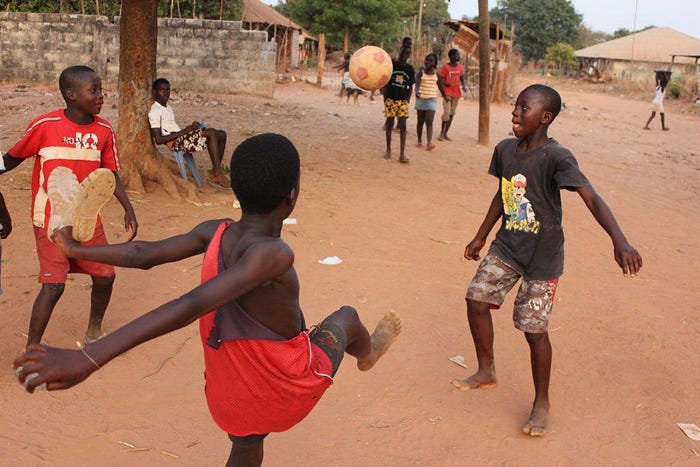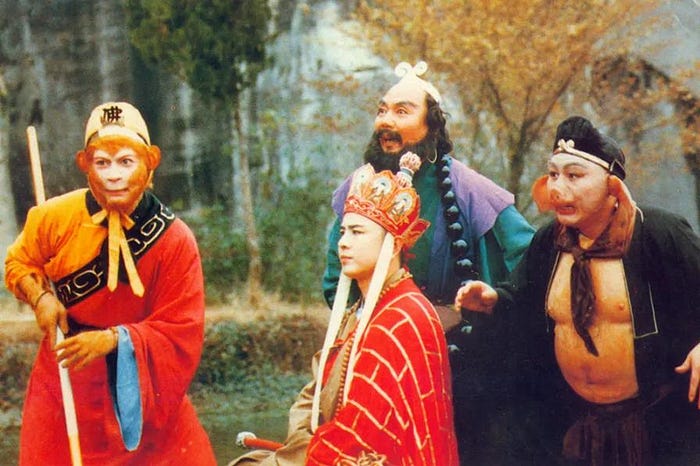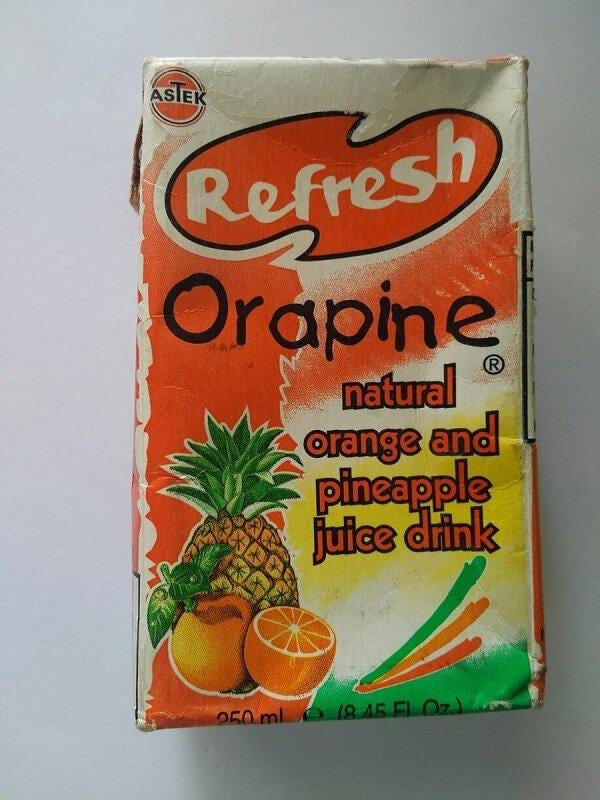In the heart of West Africa, the 90s in Ghana were an enchanting chapter of childhood — a momentous period when innocence was woven into the fabric of our existence and went on to shape a generation somewhat ahead of its time.
Akobalm, bougainvillea, calamine lotion and a Daewoo Tico. It was an era where tangerines were very orange, and oranges were not sour.
It was when the simplicity of life provided a backdrop to cultural currents that swept through our days. It was when the harmattan was a precursor to Christmas. It was when life was good.

The television became a cherished companion during those formative years.
Today, mere mention of classics like Kyekyekule, By the Fireside, Journey to the West, Inspector Bediako, Keysoap Concert Party and Taxi Driver evokes a flood of memories; our young minds were easily impressed by the web of deceit Ananse intricately weaved.
What was there not to like? From comedians swapping bowties and watches for wooden grinders and clocks to Papa Nii regurgitating enough vocabulary to make primary school teachers livid…it was such a trip.
A generation with a mutual aversion to Talking Point because it did not cut the mustard. And if you remember Akan Drama, Acapulco Bay or Ultimate Paradise, you should have, at least, one grand-kid by now.
Honestly, these shows weren’t just entertainment; they were threads stitching the collective nostalgia of a generation.
Weekdays after school and Saturday mornings heralded a realm of animated wonders like “Cartoon Network’’ and “Captain Planet.” The adventures of these heroes mirrored the dreams that danced in our young hearts.
The fact that there was a ‘Kwame’ on the latter show was a badge of honour Saturday Borns carried with unspoken pride.
Remember the jingle of aluminum carts from empty milk cans with tyres made from chalewote? Remember the crackling sound of a radio with a half-broken pole playing ‘old timers’ wafting through the air? These were acoustics to the vivid memories of carefree days under the scorching Ghanaian sun.
Then before we knew it, TV killed the radio.
Television killed the radio, and then the internet slit the television’s throat. In those days however, international programming introduced us to a broader perspective, with visual stimulation quickly replacing auditory gratification which then simultaneously sparked curiosity and challenged the simplicity of our local narratives.

If you close your eyes and concentrate hard enough, you can almost hear the noisy chortling of kids racing in the field, their adventurous legs covered with more grass than rizla.
Consequently, games like Ampe, Chaskele, Stay, and Pilolo filled our afternoons, forging bonds that surpassed the transient nature of passing trends. Counters ball was literally at our fingertips and if Four Corners was a fun game, Atari became a game changer.
The soundtrack of our lives also expanded with the rise of highlife music; the trifecta of Daddy Lumba, Kojo Antwi and Amakye Dede playing in households became the accepted standard.
The rhythmic thump of the fufu pestle intermingled with the calming resonance of Papa Yankson’s voice on lazy Sunday afternoons, forged a musical backdrop forever etched in memory.
Muscatella or 7-Up? Poki or Refresh? Parlays Biscuits or Rich Tea? Chuppa Chops or Choco Milo? Daddy’s Peugeot 504 or mummy’s Opel Ascona? Decisions, decisions…. Back when Blue Band margarine smeared on hot sliced bread was the best thing, well, since…. sliced bread.
Back when Abedi Ayew was the best player on the continent. Rawlings had exchanged his military uniform for the white underneath the Kente. Idi Koko was the face of satire.
Nat Brew and Akosua Agyapong were smitten. Harry Sawyer was the Minister for Education and Azigiza Jnr embodied the essence of a bon vivant. It’s been over 20 years, and we still don’t know Who Killed Nancy.
Reflecting on those cherished years in the late 90s can make you wistful. Did we grow up too fast or is nostalgia the closest thing we have to a time machine? How much time did we have on our hands to ponder about a melancholic future? Do we have to be constantly teleported to a place where the past is just as present?

The quirks of childhood friends, the taste of local delicacies, the incertitude over y2K, the pain that comes with picking small balloons every single time you choose a number.
When the simple pleasures of life were valued, and the echoes of laughter reverberated through the corridors of time.
This wasn’t just a chronological phase. It was a sanctuary of genuine connections, where camaraderie and community flourished.
Growing up in the 90s in Ghana was an immersion into a cultural cocoon that shaped our character, leaving an indelible mark on our hearts — a testament to the timeless beauty of a childhood when life was uncomplicated, unforgettable, and unapologetically Ghanaian.
Latest Stories
-
Paris 2024: Opening ceremony showcases grandiose celebration of French culture and diversity
4 hours -
Spectacular photos from the Paris 2024 opening ceremony
4 hours -
How decline of Indian vultures led to 500,000 human deaths
4 hours -
Paris 2024: Ghana rocks ‘fabulous fugu’ at olympics opening ceremony
5 hours -
Trust Hospital faces financial strain with rising debt levels – Auditor-General’s report
5 hours -
Electrochem lease: Allocate portions of land to Songor people – Resident demand
5 hours -
82 widows receive financial aid from Chayil Foundation
6 hours -
The silent struggles: Female journalists grapple with Ghana’s high cost of living
6 hours -
BoG yet to make any payment to Service Ghana Auto Group
6 hours -
‘Crushed Young’: The Multimedia Group, JL Properties surprise accident victim’s family with fully-furnished apartment
6 hours -
Asante Kotoko needs structure that would outlive any administration – Opoku Nti
7 hours -
JoyNews exposé on Customs officials demanding bribes airs on July 29
7 hours -
JoyNews Impact Maker Awardee ships first consignment of honey from Kwahu Afram Plains
8 hours -
Joint committee under fire over report on salt mining lease granted Electrochem
8 hours -
Life Lounge with Edem Knight-Tay: Don’t be beaten the third time
9 hours

